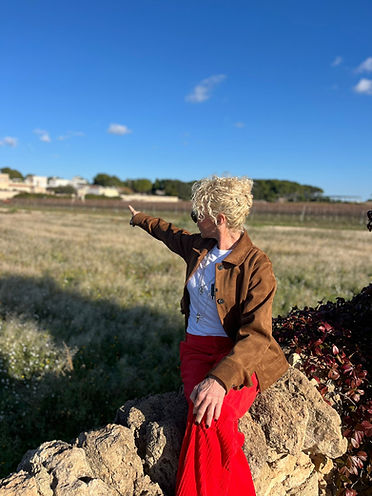Agricultural Land Market in Salento – 2024 OverviewCurrent Land Prices and Trends
- orit lev marom lev
- Mar 20
- 3 min read
Agricultural land prices in Italy have remained stable over the past decade, showing only moderate increases. In 2023, the average price for agricultural land in Italy was approximately €22,800 per hectare (an increase of less than 1% compared to 2022).
Puglia Region (Salento): The average price is approximately €15,100 per hectare (a 1% increase from the previous year).
Significant regional differences exist: In northeastern Italy, prices reach up to €47,000 per hectare, whereas southern regions usually remain below €16,000 per hectare.
The market is static, characterized by few transactions and slowly rising prices. Most transactions involve large agricultural companies, while young farmers find it difficult to enter the market despite public grants.
Demand is primarily focused on fertile and quality lands (vineyards, fruit orchards), while marginal lands experience lower demand.
[Recommended Image: Salento countryside or vineyards]
Government Policy and Impact on Foreign Investment
Several key policy initiatives recently introduced affect the land market:
Common Agricultural Policy (CAP) 2023–2027 emphasizes sustainable agriculture, innovation, and young farmers. However, its impact on land prices remains modest.
The Italian government promotes agricultural investments through tax incentives and grants. Foreign and local investors purchasing through a "Società Agricola Srl" (Agricultural Ltd. Company) receive significant tax relief.
Italy imposes no special restrictions on land acquisition by foreigners, adhering to a reciprocity principle between countries.
Increased oversight under "Golden Power" regulations protects strategic assets in the agri-food sector.
Local initiatives encourage young populations to move to rural areas, such as offering grants of up to €30,000 in Presicce-Acquarica (Salento) for renovating abandoned homes and settling there.
[Recommended Image: Renovated farmhouse or traditional Masseria in Salento]
Climate Change Effects on Agriculture in Southern Italy
Southern Italy, particularly Puglia and Salento, is highly susceptible to droughts, desertification, and soil salinization.
The Xylella fastidiosa bacterium epidemic has worsened due to climate change, resulting in over one million olive trees killed in Puglia and a 90% decline in olive oil production.
Farmers face seawater intrusion into aquifers and reduced soil fertility.
Adaptation strategies include cultivating drought-resistant varieties, investing in efficient irrigation technology, crop diversification, and organic agriculture.
Fertile areas near water sources have increased in value, while arid zones may transition to solar farms.
Popular Areas for Land Acquisition in Salento
Alto Salento (Ostuni, Cisternino, Alberobello): High demand from local and international investors for unique rural properties (Trulli and Masserie). Prices reach hundreds of thousands of euros, often exceeding one million.
Southern Salento (Gallipoli, Otranto, Santa Maria di Leuca): High interest in plots for villa construction and ecological tourism developments with approved building plans.
Central Salento and Lecce area: Moderate demand with relatively affordable prices.
Remote inland villages: Low demand, surplus land available; local authorities offer incentives to attract new families.
Investor Profiles in Salento
Investors are diverse, with a noticeable increase in foreign investors from Northern Europe and the USA.
Investors seek unique properties such as renovated Masserie, and country estates with vineyards and olive groves.
Primary Investment Motivations:
Lifestyle: Seeking quality of life and peaceful rural living.
Culture and Cuisine: Integration into rich local traditions.
Self-sustained Agriculture: Private production of wine and olive oil.
Community Acceptance: Experiencing warm and welcoming local communities.
Investment Considerations: Viewing properties as long-term investments with potential appreciation and rental income from tourism.
Summary
In 2024, the Salento agricultural land market is characterized by stable prices with modest increases, supportive government policies, significant climate change impacts, and rising foreign investment. Despite these challenges, Salento remains a desirable destination for agricultural and real estate investments in southern Italy.














Comments